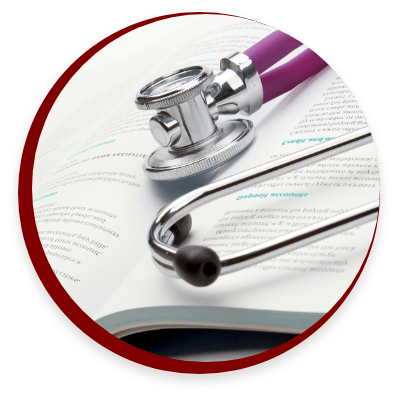Psychiatry
Last updated on: September 3rd, 2021

Hi there!
You’re looking at a short reference article from Explain Medicine (one of four distinct learning formats available in Clinical Odyssey). Try it out, and have fun improving your clinical skills.
Opioid use disorder, abuse and dependence
Clinicals - History
Introduction
Opioid use disorder (OUD) is a type of substance use disorder (SUD). It is a chronic relapsing mental disorder in which opioid use leads to addiction, resulting in devastating social, psychological, and medical consequences, including death. Opioids are naturally occurring or synthetic derivatives of opium, a psychoactive substance derived from the opium poppy plant. This includes street drugs, such as heroin, and prescription analgesics, such as oxycodone, fentanyl, and others. These agents may be prescribed for pain relief, cough suppression, or to control diarrhea. However, the potential for addiction and overdose is significant, particularly with stronger opioids like heroin and fentanyl.
Prescription opioid use
Often, patients begin abusing opioids prescribed to them for medical reasons. Others commence opioid abuse after using another person's prescription, with or without their consent. There is a common pattern of behavior in which patients begin abusing oral medications and then progress to snorting and injecting heroin.
Drug seeking behavior
People with OUD may present to the physician in an attempt to acquire a prescription for opioids. Sometimes, patterns known as drug-seeking behavior will be present. This includes insisting on receiving a specific drug, asking for a specific drug brand, claiming allergies to multiple types of other non-narcotic medications, requesting increased doses, needing early refills, and generally worrying more about the drug than the medical problem itself.
Injected drug use
Many, if not most, people with OUD progress from ingesting pills to snorting opioids and eventually injecting heroin. In particular, almost half of adolescents with heroin addiction use injections.
Use by minors
Minors end up being introduced to opioids following challenges by peers or adults; and because of lack of knowledge and understanding of the implications of drug use. Addiction progresses quickly in children; they may exhibit significant problems after just several months. Minors may struggle at school or get into legal trouble. Parents may notice changes in their social circle, isolation from family and friends, irritability, depression, decreased interest in leisurely activities and hobbies, and changes in eating and sleeping patterns.
Social and family history
A thorough social history is essential, including information on mental health status, education, sexual activity, living conditions, behavior at home (e.g., violent or abusive behavior or mood swings), family support, social service involvement, illegal activities, prescription opioid use, and history of SUD. This allows physicians to tailor their approach based on the patient's characteristics and identify any areas of concern that may be contributing to this condition.
Symptoms of withdrawal
Patients will experience withdrawal symptoms within hours to a few days, depending on the half-life of the opioid used. Acute withdrawal leads to extreme discomfort, anxiety, and physical symptoms such as diarrhea, nausea, vomiting, piloerection, diaphoresis, increased lacrimation, and rhinorrhea, myalgia, itching, insomnia, and coma. Severe cravings may force the patient to recommence their drug abuse.
Neonatal abstinence syndrome
The use of opioids during pregnancy may lead to neonatal abstinence syndrome (NAS). NAS is associated with low birth weight, feeding problems, respiratory difficulties, and seizures.
Sudden death
Persons with OUD tend to develop increasing tolerance to opioids over time, requiring higher and higher doses to achieve the same euphoric sensation. This may lead to overdose and death.
Want to continue reading?
- Enjoy unlimited access to 700+ games.
- Safely improve your skills, anytime and anywhere.
- Get answers to your follow-up questions from practicing physicians.
